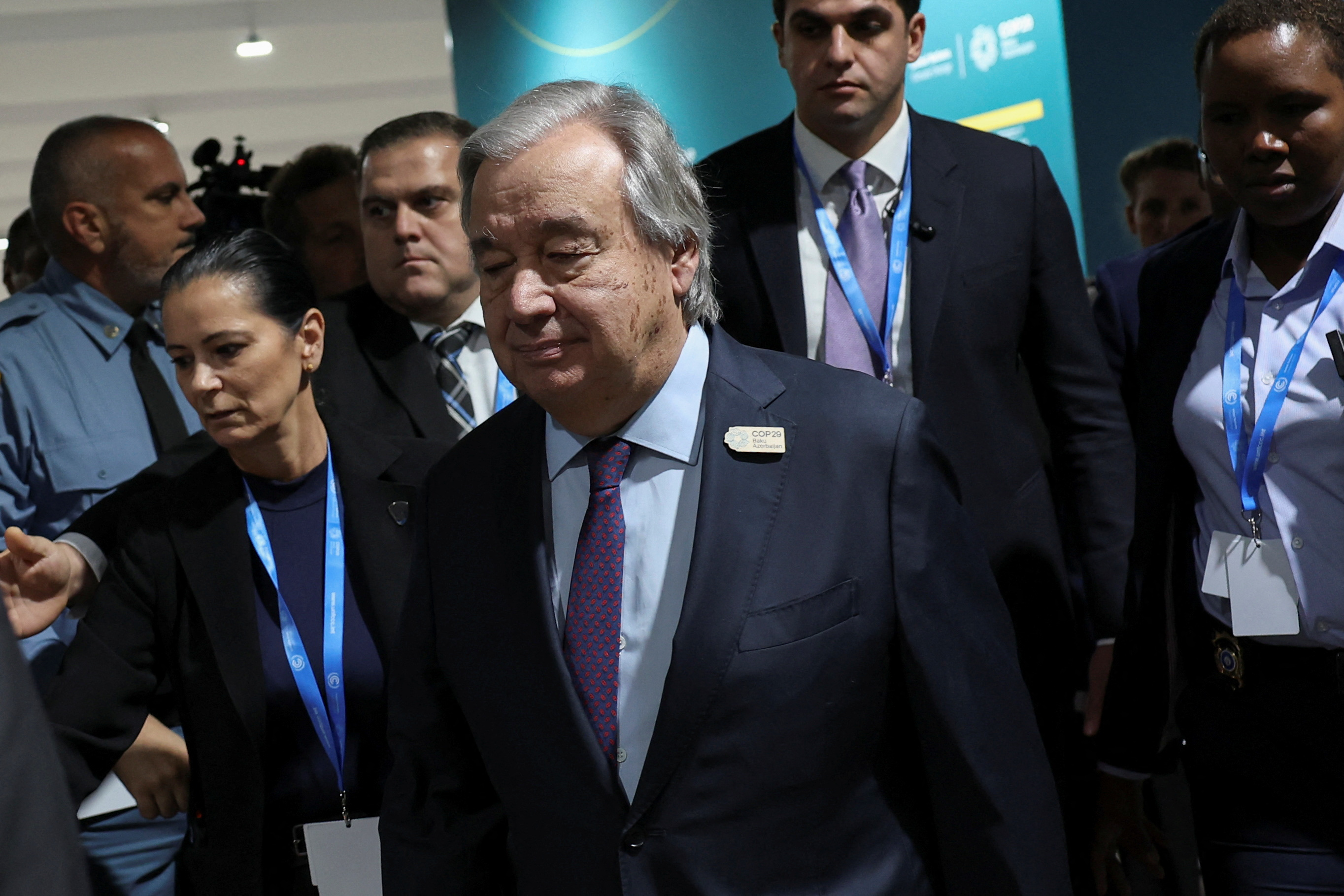
Intense negotiations continued until late on Thursday, but to no avail. All parties appear to be determined to hold onto their positions until the very last moment, with overtime beyond Friday expected again.
An updated document was eventually released on Thursday, but even though more focused, the key climate finance numbers, and what counts towards these numbers, are still elusive. The space for the new climate finance goal (NCQG) is still marked with an “X”.
Developing countries are pressing hard for at least $1 trillion annually by 2030, while developed countries are insisting on broadening the types of finance that count toward the final amount, not just grants from them, but also contributions from others. They want to see what China, the rich Gulf countries and emerging economies – such as Brazil, Indonesia and South Korea – will commit to before they reveal what they are prepared to contribute.
Wopke Hoekstra, the EU climate envoy, made that clear when he said “It is important to determine the elements first, so that you can have an informed conversation about what an ambitious and also realistic number could be.”
But so far, emerging economies are refusing to be drawn in. It is hoped this will eventually be overcome by referring to their contributions as “voluntary”.
In addition to the grant finance from developed countries and voluntary contributions from rich developing countries, the $1tn figure will be made from private finance, funds provided by multilateral development banks (MDBs) and innovative sources, such as global taxes and levies. It is estimated that private finance can help generate over $500 billion for climate action.
MDBs have already announced a significant boost in climate finance for low- and middle- income countries that will reach $120bn per year by 2030.
With the clear message from the G20 to their negotiators not to leave COP29 without agreement on climate finance, there is still hope that there will be a result this weekend.
Transitioning away from fossil fuels
This remains an area of deep disagreement. The EU holds firm onto the COP28 commitment to cut emissions and on mitigation and to move away from fossil fuels, but it has fortunately refrained from setting out any red lines. Countries expressed strong concerns about weakening these commitments.
Saudi Arabia made it clear that it does not want to go beyond the COP28 agreement. “The Arab group will not accept any text that targets any specific sectors, including fossil fuels.” But China also said it opposed an explicit mention of the fossil fuel pledge.
India also said it cannot accept any attempts to “deflect the focus from finance to the repeated emphasis on mitigation”. This is an attempt by developed countries to “shift in focus from their responsibilities of providing finance.”
Reference to the ‘UAE Consensus’ agreed at COP28, may still be the acceptable compromise.
Optimism?
May be. There is optimism that what is happening is part of “an end-game” and that “a path to a conclusion is beginning to open up”. Sources from the COP29 presidency confirmed this. They said that even though there are still a lot of details to be worked out, they believe they are “nearing a historic Baku breakthrough.”
The UN Secretary-General Antonio Guterres returned to Baku to lend his weight to this end-game. He said “Delegations, and the COP presidency, are working hard to find common ground. But…the clock is ticking. COP29 is now down to the wire. I sense an appetite for agreement. Areas of convergence are coming into focus. But differences remain. We need a major push to get discussions over the finishing line…Navigate a path.”


